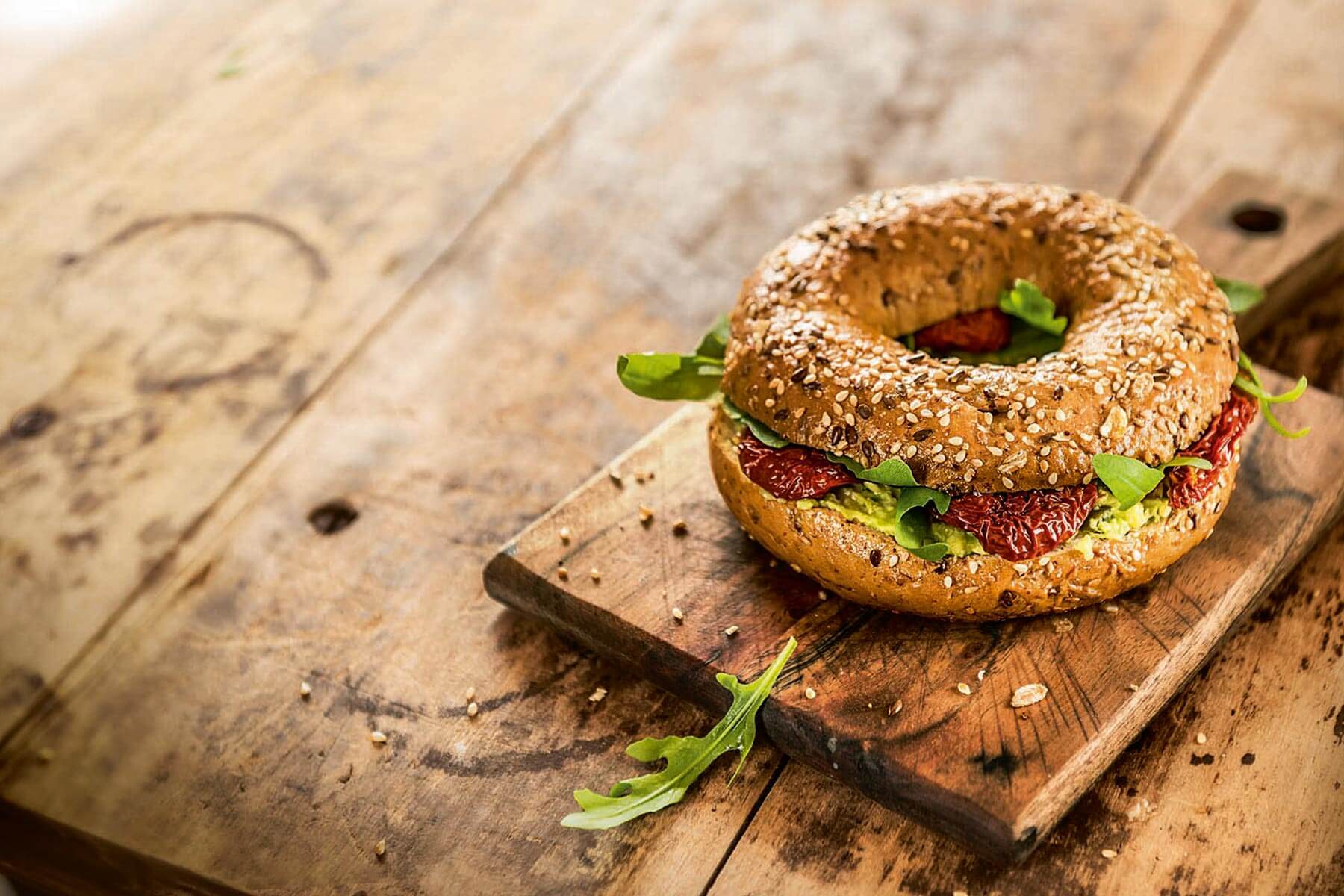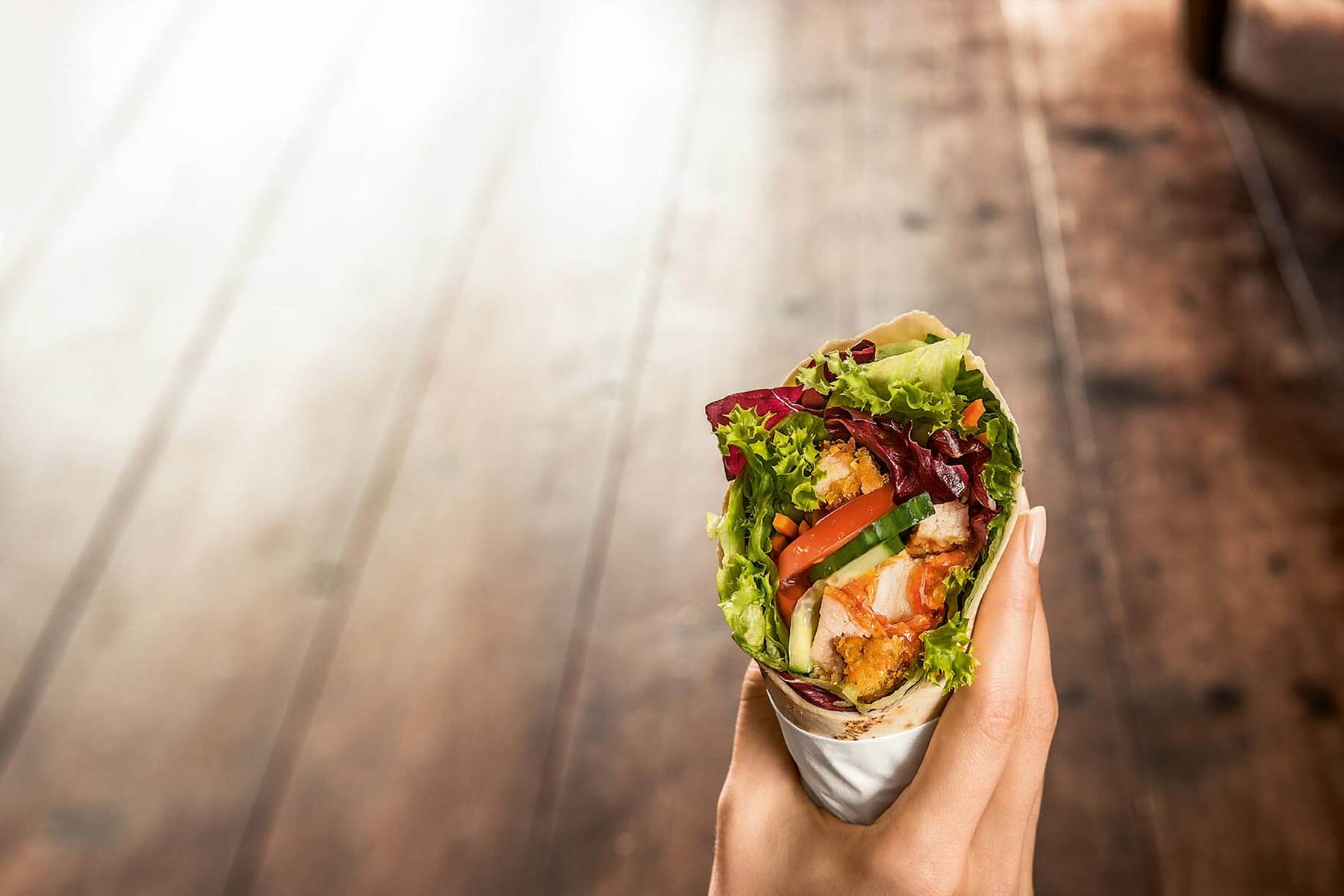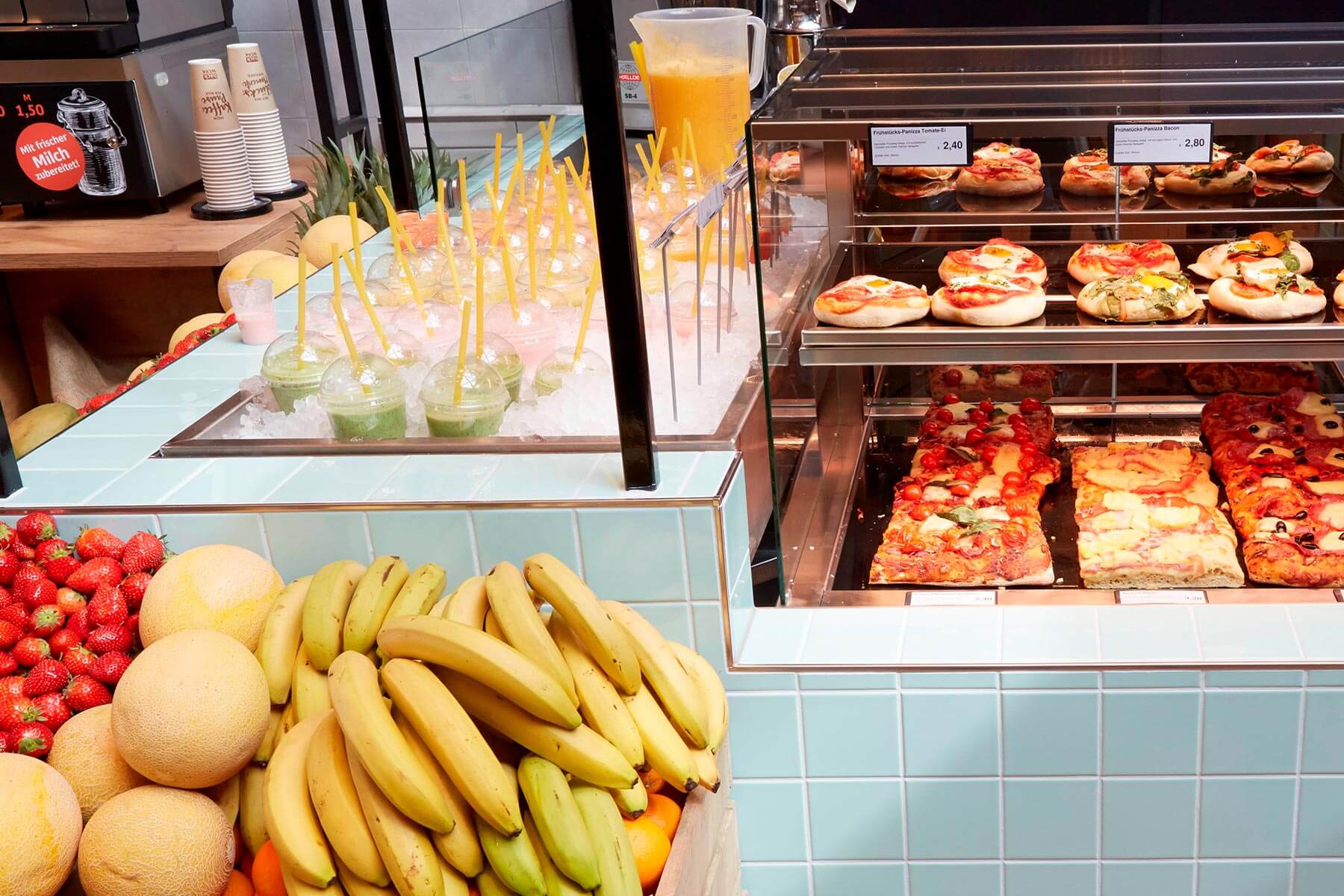Never mind good resolutions: The Germans love good snacks and are prepared to pay good money for them. The business is booming. As Germany’s biggest food service bakery, BackWerk carried out a study of snacking for the first time.
Those who believe the Germans have a sweet tooth are wrong. They may love snacking (53.7% do so several times a week), and prefer doing so in the afternoon, but most of them like savoury snacks (63.2%). The Germans can’t quite agree on whether they prefer their snacks cold or warm. The race is neck and neck: while men prefer their snacks warm (42.3% men, 32.9% women), women favour cold snacks (39.7% women, 36.4% men).
Most Germans eat their snacks on the go (37.8%), while the 60 to 69-year age group and those from the new Bundesländer like snacking at home. Men and women of all ages and from all regions agree on the price of a snack: it should be between two and three euros. This really isn’t far from reality: at BackWerk, Germans can snack for EUR 2.95 on average.

Germans are gourmets rather than comfort eaters
When it comes to snacking out of frustration, boredom or habit: the Germans are real gourmets! For both men and women, the main reasons for snacking include hunger (57.0%), appetite (49.0%) and for enjoyment (32.0%), whereby women tend to snack more out of hunger and men more to feed an appetite. Frustration as a reason for snacking ranks last for both genders (3.5%). It’s also interesting that most people don’t associate snacking with taking in vitamins (6.3%). But even though Germans don’t regard traditional snacks as a vitamin boost, they still attach importance to basic qualities: a snack must be ‘free of preservatives’ (32.9%), ‘low-fat’ (27.9%) and have ‘no added sugar’ (26.9%). With single-digit percentages, qualities such as ‘vegan’, ‘vegetarian’ and ‘gluten-free’ lag far behind.

Taste and value for money are important
Different rules apply for choosing a snack than for shopping at the supermarket or in Switzerland: while consumer surveys show that regional and seasonal criteria are important for the latter, these qualities play a subordinate role when it comes to snacks (6.1% and 4.7%). When choosing the right snack, the most important factors are taste (71.0%) and good value for money (50.2%). German snackers thus turn out to be culinary penny pinchers.

Snack it yourself: the Germans are individualists
When it comes to snacks, the Germans see much room for improvement in reducing the packaging destined for the rubbish (37.7%), for example by using biodegradable materials or edible packaging or by introducing deposit systems and reusable crockery (37.7%). The idea of putting together your own snack also ranked among the winning ideas for optimisation (13.3%). Other proposals for improvement included trends such as ‘clean eating’, ‘molecular gastronomy’, ‘raw food’ and ‘regional superfoods’.
The study
BackWerk, a member of the Valora Group, mandated the market research institute SPLENDID RESEARCH to carry out a representative study on snacking. A total of 1,061 people older than 18 were questioned in Germany between 24 August and
3 September 2018. For this survey, snacks were defined as diverse, ready-made, cold or warm meals for in-between that can be bought quickly on the spot. Examples include warm hot dogs, fancy wraps, fresh salads, a wide variety of sandwiches or healthy fruit cups. According to the definition used by this survey, sweets (e.g. chocolate or wine gums), nibbles (e.g. chips) and biscuits from the supermarket do not fall under snacks. The answers to the survey took account of this.
Photos: Burkhard Henrichs Photographer, BackWerk

